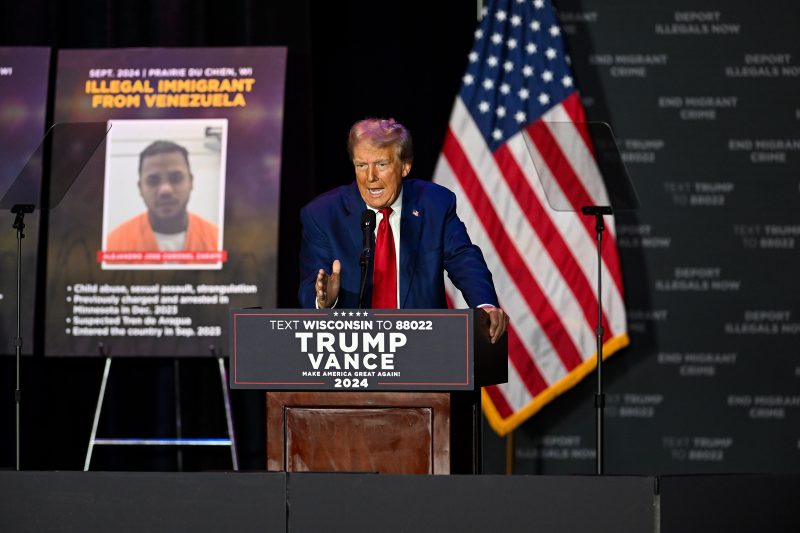In a recent statement, former President Donald Trump has made an outrageously false claim that there are 13,000 migrant murderers on the loose in the United States. This unsubstantiated and fear-mongering assertion has sparked significant controversy and raised concerns about the impact of such rhetoric on public perception and policy-making.
First and foremost, it is crucial to address the lack of factual basis for Trump’s claim. There is no credible evidence to support the assertion that 13,000 migrant murderers are roaming free in the United States. Such a claim grossly exaggerates the reality of the situation and serves only to stoke fear and hatred towards migrants. By disseminating such misleading information, Trump not only undermines the credibility of his own statements but also perpetuates harmful stereotypes about immigrants.
Moreover, Trump’s inflammatory rhetoric regarding migrant murderers is highly problematic from a human rights perspective. By painting migrants as violent criminals without any evidence, he contributes to the dehumanization and demonization of vulnerable populations. This kind of language not only fuels discrimination and prejudice but also risks inciting violence and hate crimes against migrants and refugees.
It is essential to recognize the broader implications of Trump’s false claim in terms of public policy and societal attitudes. Such sensationalized statements can have a lasting impact on the ways in which immigration issues are perceived and addressed. By spreading misinformation and promoting a climate of fear, Trump undermines efforts to craft humane and rational immigration policies that are based on facts and respect for human dignity.
In conclusion, the recent assertion by former President Donald Trump that there are 13,000 migrant murderers on the loose in the United States is not only false but also dangerous. By promoting such baseless claims, Trump contributes to a climate of fear and hostility towards migrants, perpetuating harmful stereotypes and undermining efforts to create a more inclusive and just society. It is crucial to challenge and confront this type of misinformation and to advocate for policies that uphold the rights and dignity of all individuals, regardless of their immigration status.

